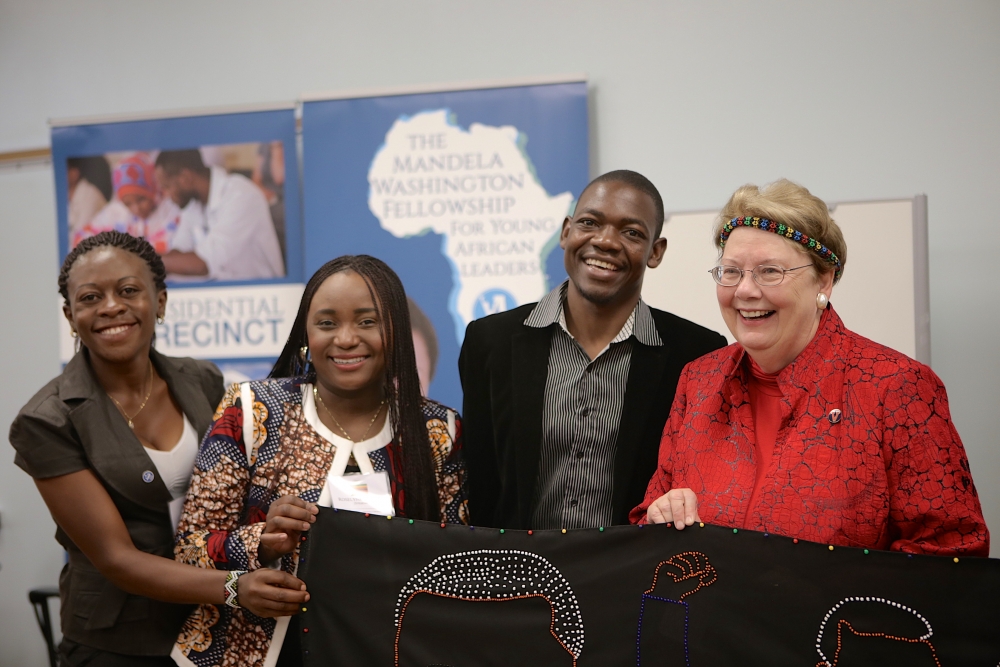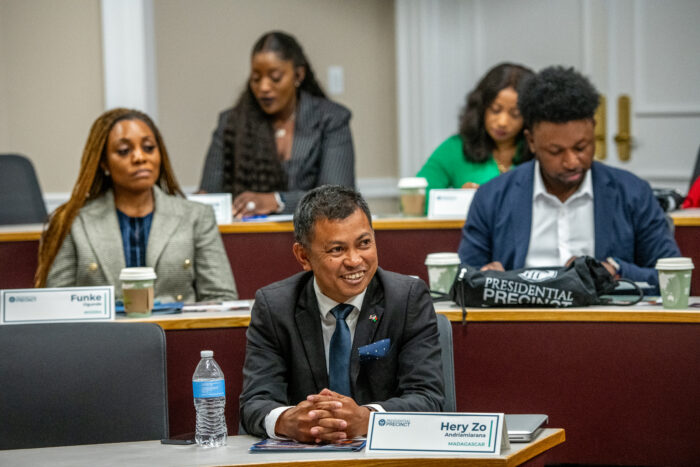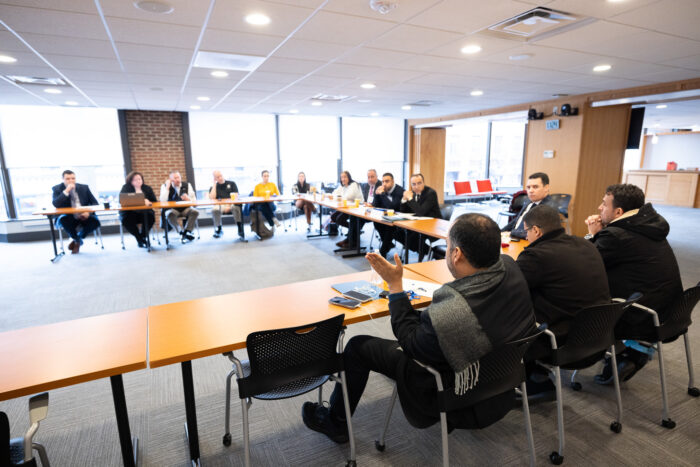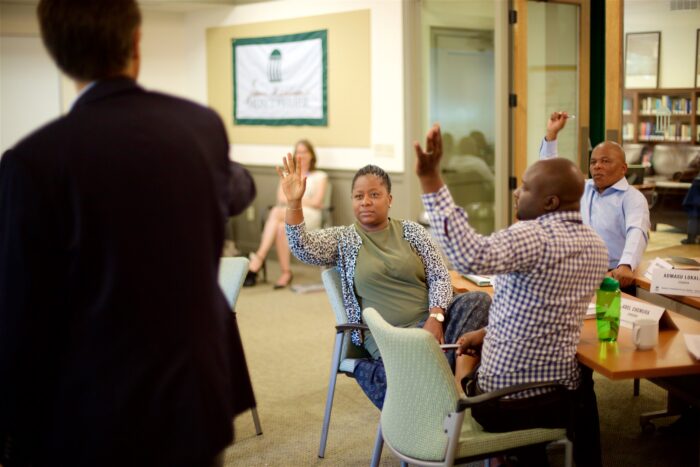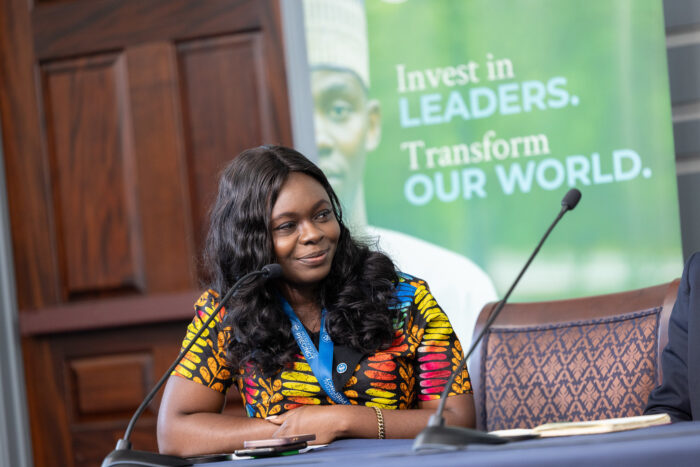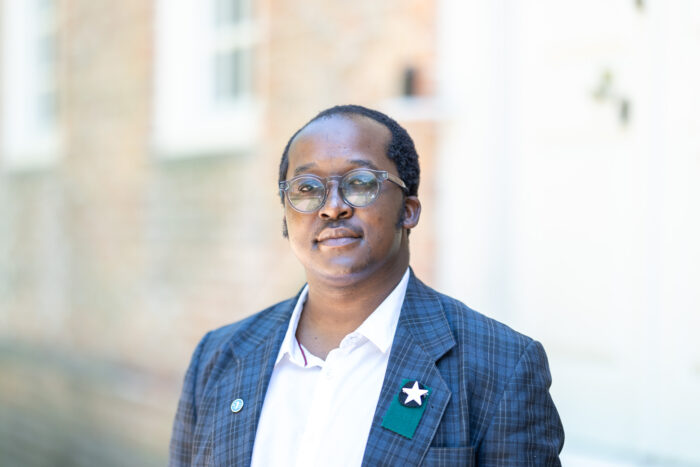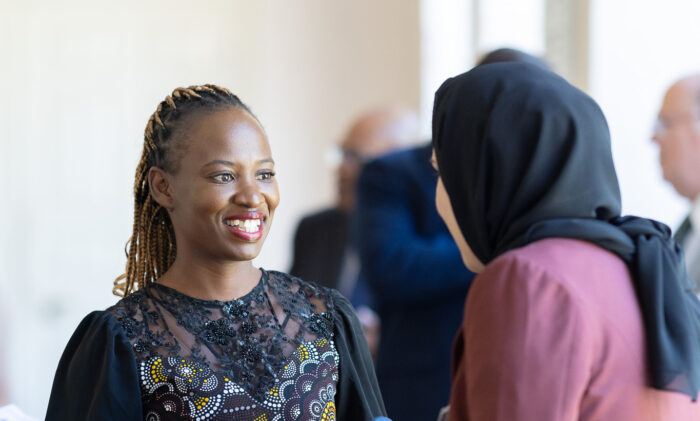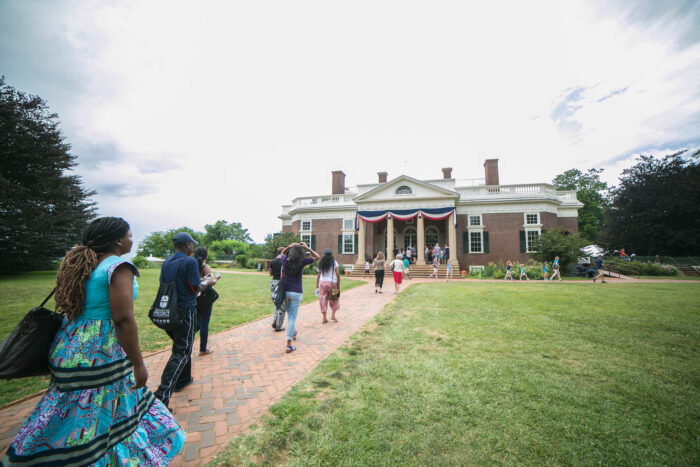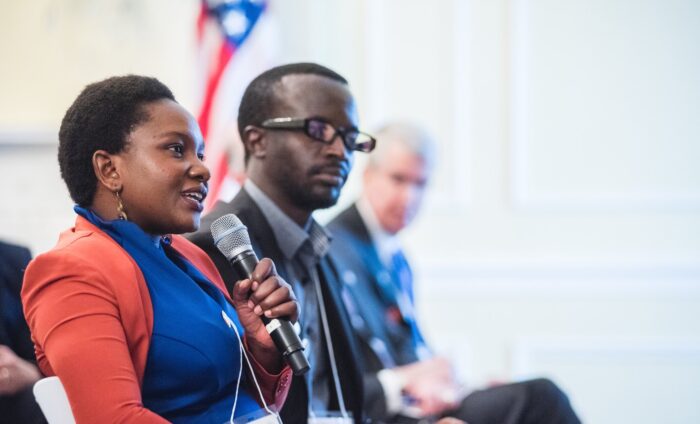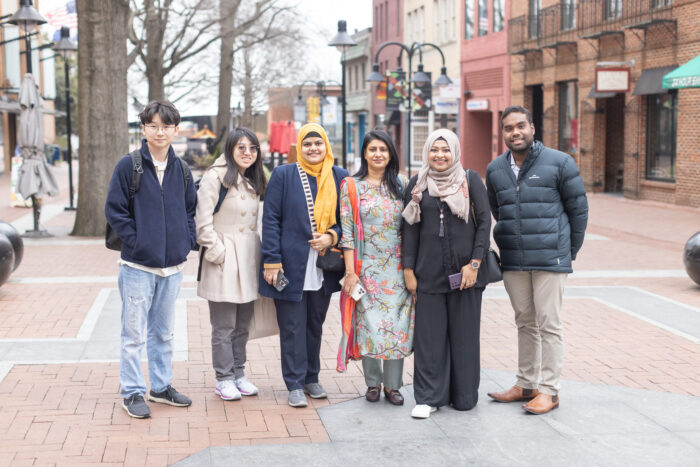The Presidential Precinct’s Mandela Fellows visit the University of Virginia
Originally published by the Cavalier Daily.
Over the past two weeks, University staff member Stewart Gamage, Director of Programs at Morven Farm, and Architecture Prof. Anselmo Gianluca Canfora participated in the Presidential Precinct’s Mandela Washington Fellowship — a program bringing emerging African leaders to the United States as part of President Obama’s Young African Leaders Initiative.
The Presidential Precinct — a partnership between the University, the College of William & Mary, Morven Farm, Ash-Lawn Highland, Monticello and Montpelier — was chosen by the State Department to host the six-week summer program. The fellows, African men and women selected to participate in the program, travel to sites including the University and Morven Farm for academic work, civic leadership training and mentoring.
Gamage said the fellowship is an excellent opportunity for the Presidential Precinct to take steps toward its goal of working with emerging leaders from around the world.
“I’m struck every day by the [fellows’] courage, tenacity and determination to form a government and shape a country,” Gamage said. “In some ways, [the work] helps us renew our own commitments to the things that are really the most important. I think it gives people like myself, others and students and faculty at the University a chance to really have this window to see the things that are actually happening in these countries. It helps us see that what we take for granted here everyday is very much not certain in the fellows’ native countries.”
Gamage said she has particularly enjoyed getting to know the fellows and supporting their leadership development. In addition, Gamage said the fellows have taught her about the vastness and diversity of the African continent.
“A lot of these countries have very different social, economic, political circumstances,” Gamage said. “They don’t know each other either in some cases. Some of [the fellows] have not travelled, not surprisingly, throughout the continent. So, in some ways, they’re really learning about some of their African neighbors, which had sort of been a surprise to us. It’s hard to get at how large the continent actually is, and the differences in climate, resources and politics are really extraordinary.”
This year was Canfora’s first time working with the Mandela Washington Fellows.
“I’ve had some experience working in the continent of Africa,” Canfora said. “I wasn’t so much surprised [by the fellows], but rather reassured of this kind of openness of dialogue with which they engaged. On the whole, they were very interested in engaging me, as I was in engaging them. It was very reciprocal.”
Canfora led a design-thinking workshop which aimed to build a foundation for approaches to critical thinking and problem solving. In the 90-minute session, the fellows formed teams and collaborated on a design challenge.
“The design challenge was to rethink the moment you awake in the morning,” Canfora said. “How does one rethink or re-experience that moment when you first wake up in the morning? What are the challenges, in some cases, or what are the real interests and joy in waking up? … So the idea there is to really make the design challenge very concrete and straightforward, and then use that to leverage a set of other ideas and concepts that might be more complex and abstract — look at larger-scale issues.”
Canfora said the fellows’ ideas in the design-thinking challenge were plentiful and creative.
“I was thoroughly impressed with how engaged [the fellows] were — both in terms of asking questions, clarification questions about the workshop, but also in the way they engaged the concepts and the ideas that we discussed,” Canfora said. “They were open, transparent, very honest discussions.”
Canfora said that his workshop with the fellows and their willingness and openness of discussion reaffirmed the positive and engaging interactions he had previously experienced in Africa.
“I was reassured by [the fellows’] willingness — everybody wanted to really dive into this little design challenge,” Canfora said. “I welcomed it and was reassured by that interactivity that I had experienced [on the continent] before.”

